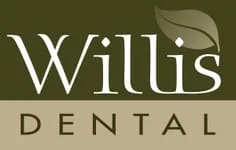While it's easy to think of our oral health as only having an impact on our teeth and gums, recent studies have found surprising evidence that links our oral and overall health. Research suggests that individuals who suffer from oral health conditions such as tooth decay, gum disease, and tooth loss have a significantly higher risk of developing a range of chronic health conditions that include diabetes, stroke, dementia, cardiovascular disease, arthritis, and cancer. While researchers continue to explore what connects these types of systemic diseases to our oral health, it's become clear that practicing preventative dental care can help ensure a healthy body now and into the future.
The best way to lower your risk of gum disease, tooth decay, and other common oral health problems is by following these three steps:
- Brush twice daily. Brushing helps to remove harmful oral bacteria and food particles that linger in the mouth after eating from the surface of our teeth and along our gum lines. Plaque - a sticky biofilm - uses the foods we eat to produce harmful substances that slowly erode away our tooth enamel and increase our risk of cavities and decay. By brushing at least twice a day, you can remove plaque deposits from the surface of your teeth and reduce your risk of dental disease.
- Floss daily. Flossing helps to remove food particles and plaque from areas of our mouth that a toothbrush cannot reach - between our teeth and below the gum line. If you don't take the time to properly floss at least once a day, you're failing to clean over 33% of your mouth! Needless to say, one of the most common areas for cavities to develop is actually between a patient's teeth, further underscoring why flossing is such an important habit for protecting your longterm oral health.
- Scheduling regular dental exams. Regular exams and cleanings provide our staff the opportunity to assess the current state of your oral health and remove plaque deposits from the surface of your teeth and gum line.
Follow these three steps, and you'll enjoy a lifetime of great-looking teeth and healthy gums, while also lowering your risk for a number of diseases that could threaten your overall health.
Dental Exams & Cleanings
Receiving regular dental exams and cleanings rank as a fundamental part of maintaining and protecting your longterm oral health. Regular exams provide Our Doctors the opportunity to spot the early signs of decay and dental disease while these conditions are still easily treatable. The longer these types of oral health problems go unchecked, the more lasting damage can occur.
Frequent oral cleanings allow our team of gentle dental hygienists to remove plaque deposits from the surface of your teeth and along the gum line. When plaque is allowed to harden, it turns into a yellowish substance known as tartar. Not only does tartar buildup discolor teeth - robbing you of their natural luster - it also irritates gum tissue, increasing your risk of gum disease. Once hardened into tartar, plaque can only before removed from your teeth during a professional cleaning.
While We typically recommends that patients schedule exams and cleanings every six months, patients with certain medical and dental conditions - such as diabetes or heart disease - may need to schedule appointments more regularly.
Dental Sealants
Our teeth feature a number of hard-to-clean grooves that can make practicing quality oral hygiene difficult for younger patients who don't possess the manual dexterity or attention to detail needed to properly brush. When these hard-to-clean areas of the mouth become the breeding ground for plaque buildup and decay, cavities can easily develop.
Dental sealants help to physically "seal" away areas of the mouth that are difficult to clean, like the back molars, to protect tooth enamel from the effects of decay. During just one session, our team at Willis Dental can apply a simple tooth-colored acrylic coating to the surface of a patient's teeth in need of the treatment. Once in place, the sealant will prevent plaque buildup and keep the teeth safe from the effects of decay.
Tooth sealants are perfectly safe for both children and adults, and the application process only takes a few minutes to complete. Dental sealants are incredibly durable and can last for years before a reapplication is required.
To see if sealants are right for you or your child, contact our office to schedule your next dental appointment.
